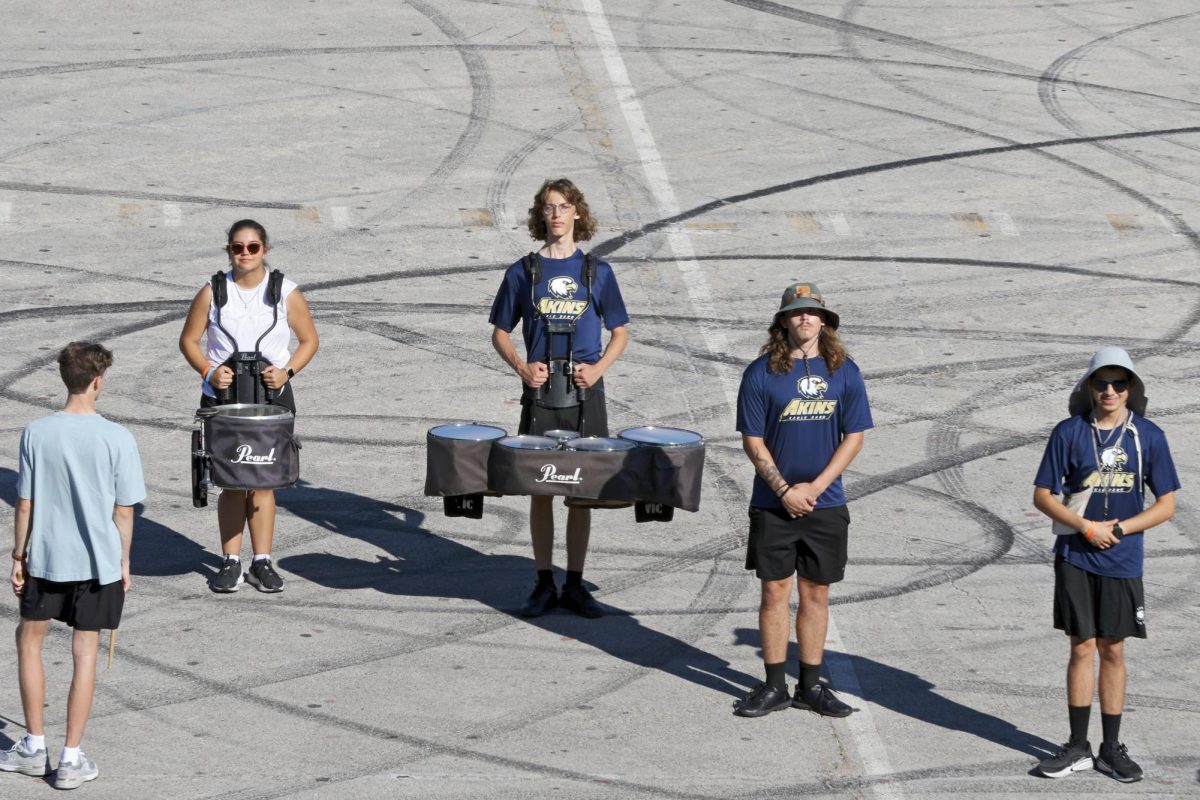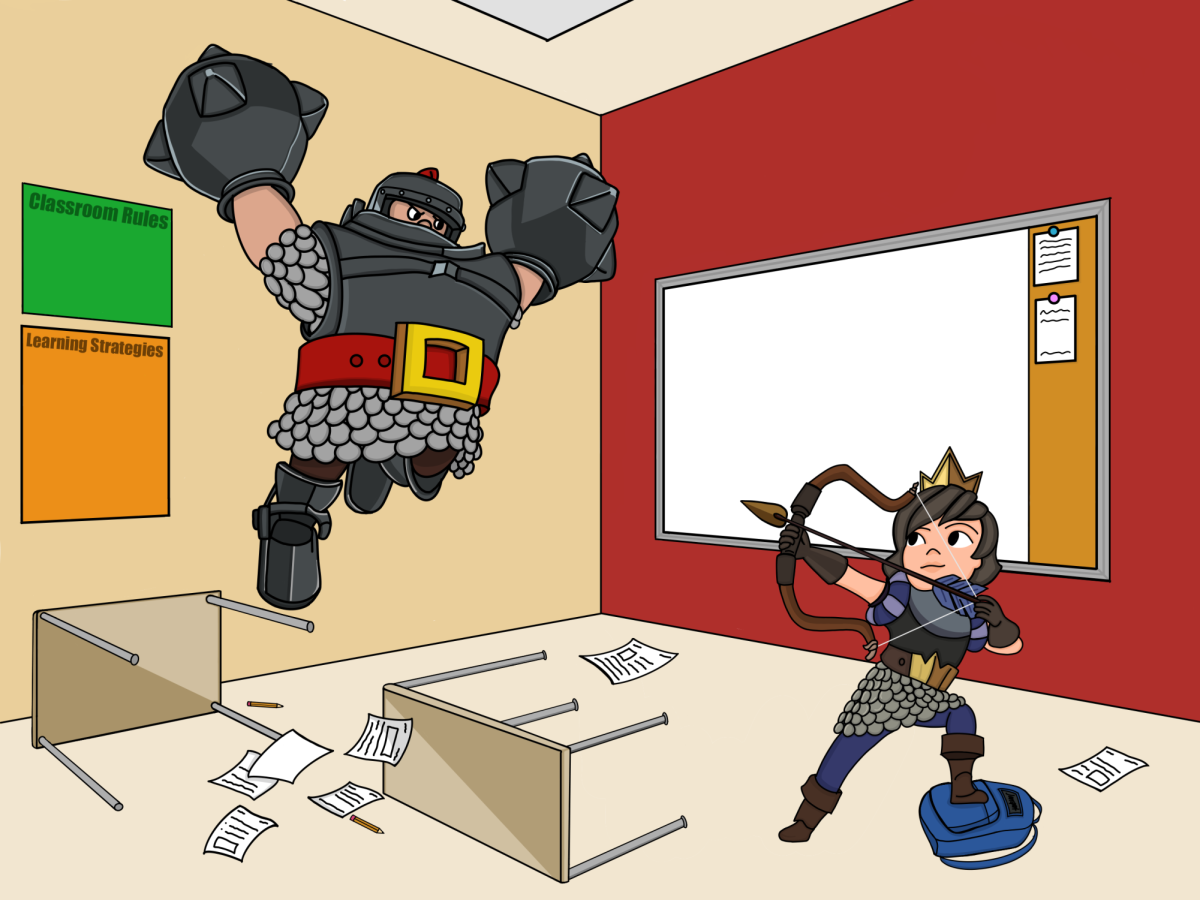It’s Saturday morning, and a horde of zombies dressed in blue shirts is approaching the Akins Fine Arts building.
OK. They aren’t really zombies, but members of the Akins Eagle band dragged themselves out of bed near dawn after going to bed past midnight — following hours spent performing at a late-night football game and riding a bus almost an hour away — they might feel like the undead in these early morning hours.
Despite their weariness, members of the Akins Marching Band were ready for practice at 9 a.m. before heading off to another long day of performing at a competition. It’s hard, but the long hours and hard work are part of the job, especially in the busy fall semester, which is dominated by practices, performances, and competitions.
Since August, band members have been reporting to Akins for early morning rehearsals, working late in the evenings, and even on days off of school.
Director Jose Flores said this season is much more than just winning trophies and making finals. With a large freshman class, they’re focused and committed to developing their marching skills and musicality.
“I want the freshmen to develop in these three months of marching band the skills they should have developed in three years of middle school…” Flores said.
Assistant Band Director William Kimmell said they plan to be competitive at all of their upcoming competitions.
“I want to provide a very competitive program… Meaning making finals at every competition,” he said.
However, they made it clear that they don’t see success as just winning. Flores said that’s not how band directors judge the success of their students.
“There’s a surface level of success that only the outside sees, the trophies, the rankings, the public performances, and there’s a deeper level that only the band experiences,” Flores said. “What band experiences is the daily journey of self-improvement and refinement over several months. I measure success based on the growth of a student from day 1. Are they better humans because of the band? If so, that is success.”
“I want the students to develop grit and discipline, develop a metaphorical ‘backbone’ and be willing to embrace discomfort because that’s where you grow,” and “Band teaches real-world skills– leadership, time management, communication, and teamwork,” Kimmel said. They’re proud of how their students have developed over the previous years.
Drum Corps or DCI is the most competitive marching bracket in the world that only recruits top talent under age 22. Jaiden Medina, a band student who graduated last year, competed in the previous DCI season with Santa Clara Vanguard, an elite corps that placed 3rd at the DCI World Final. Flores credits this success with introducing the band to DCI.
“We really love to say that band is for everyone,” Kimmel said. “To anyone scared to try it, your favorite musician had to start somewhere; they had a first lesson before, too,” He added. “Don’t be scared to try something new…”
Building a program that’s open to everyone isn’t an easy task; it’s a logistical challenge. From moving instruments and heavy equipment, having props built, bringing in techs and writers, and finding the funds to get it all done, the directors are constantly working to give students the best possible season.
Having a competitive marching program doesn’t come cheap. By the director’s own estimate, this season will cost just over $100,000. Akins received $80,000 from the district for the marching program. The band also received several grants, $10,000 from the Austin Ed Fund, $5,000 from Spark Good Grants, and $1,500 from A+ FCU.
“Honestly, the competitions and, like, seeing all of my sections, like, faces when we make finals or we get, we place high, like, it makes everything worth it,” said Rachel Guerrero, a sax section leader.









